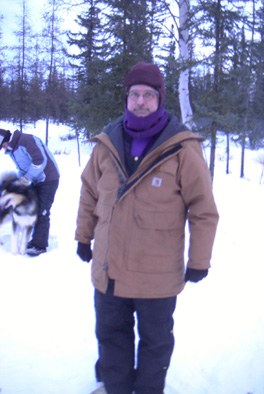My father sang in church choirs most of his life, and his favorite pieces were Handel’s Messiah and Beethoven’s Ninth. Once he sang in the chorus for the Dallas Opera production of Boris Godunov. Along with the Steinway baby grand he bought me when I was 15, which stands in my living room today, such was his contribution to classical music. He was an accountant for Mobil Oil, and spent the last three of his 29 years there as an office manager in Jeddah, Saudi Arabia. Having grown up dirt-poor on a farm in what is now a rather stylish section of Dallas, he landed at Omaha Beach three days after D-Day, and was a corporal in the 7th Armored Division under Patton at the Battle of the Bulge. He heard the gunfire of the massacre of American prisoners at Malmedy as he was frantically trying to fix a tire on his halftrack.
Luckily – since I was stubborn – he attempted his paternal duty only once. In my last year of high school he warned me that to be a musician was a difficult and insecure life. What would I do about retirement?, he asked. As an artist, I replied, I had no wish to retire. It seemed to me, at 17, unwise to plan one’s entire life around retirement. But Dad eventually retired at the age of 57, and enjoyed his leisure for 23 wonderful years. On my side, I know that he sometimes hated going in to work – whereas I, in my often financially precarious adult life, have never once woken up and had to go do anything for a living that wasn’t music-related. The jury on who won that argument is still out. Meanwhile, my son’s middle name is Marvin.
Dad died Saturday, and we buried him Monday, in Frisco, Texas.


 This had all been John’s idea and I, no seeker of physical thrills, was dubious until the moment I got in the sled. But from the first rush I was exhilarated. No eight humans could have showed more personal nuance than the dogs; Pepper was thirsty and kept grabbing mouthfuls of snow, Sherman wanted to look back at Tom rather than stay on his side of the line, and kept getting tangled up. The lead dogs were a little young, Tom explained, and though they took charge well, they sometimes paused to argue with commands. Once I slid far enough up an embankment that I expected to be tumbled out into the snow, once the dogs nearly took off without Tom while he was untangling the line, but disasters were avoided, and it was pure effervescence. It became easy to imagine that, years ago, this was the most efficient possible technology for negotiating Alaska’s frozen expanses. People in the back country still do it, for pleasure and for purely practical considerations. So I’m sold: DO NOT go to Alaska, DO NOT, without getting a dog-sled ride.
This had all been John’s idea and I, no seeker of physical thrills, was dubious until the moment I got in the sled. But from the first rush I was exhilarated. No eight humans could have showed more personal nuance than the dogs; Pepper was thirsty and kept grabbing mouthfuls of snow, Sherman wanted to look back at Tom rather than stay on his side of the line, and kept getting tangled up. The lead dogs were a little young, Tom explained, and though they took charge well, they sometimes paused to argue with commands. Once I slid far enough up an embankment that I expected to be tumbled out into the snow, once the dogs nearly took off without Tom while he was untangling the line, but disasters were avoided, and it was pure effervescence. It became easy to imagine that, years ago, this was the most efficient possible technology for negotiating Alaska’s frozen expanses. People in the back country still do it, for pleasure and for purely practical considerations. So I’m sold: DO NOT go to Alaska, DO NOT, without getting a dog-sled ride.
